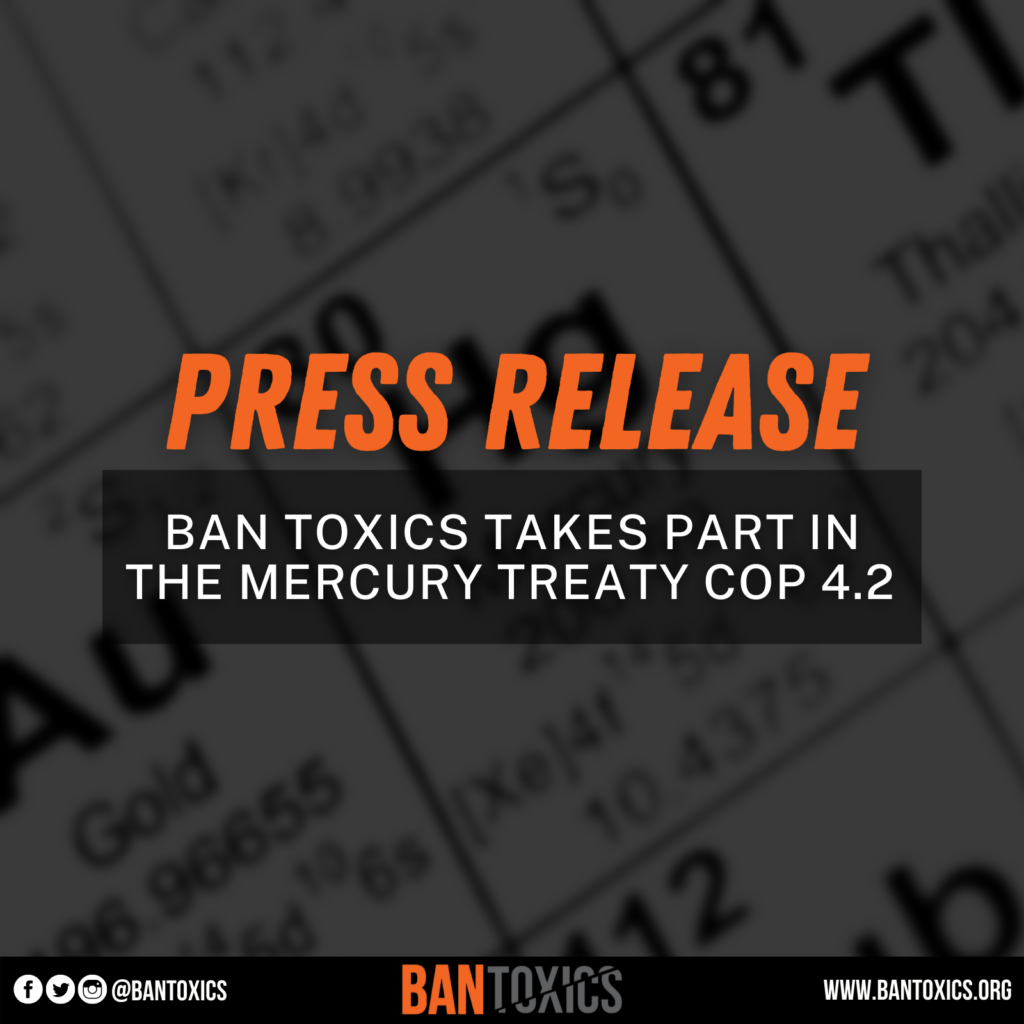PRESS RELEASE | March 29, 2022

Delegates and representatives of hundreds of parties and organizations convened in Bali, Indonesia, from March 21 to 25, 2022, for the five-day second segment of the fourth meeting of the Conference of the Parties (COP) to the Minamata Convention.
Among the delegates is environmental watchdog BAN Toxics, represented by Policy and Research Associate Jam Lorenzo. BAN Toxics is a non-government organization that supports the protection of the environment through the promotion of sound chemicals and waste management practices.
“COP 4 is significant in many ways — this is the Philippines’ first COP since ratifying the Minamata Convention on Mercury in 2020, and it has allowed us to showcase the country’s commitment to reducing and eliminating mercury,” says Lorenzo.
“On the global stage, we were able to highlight how our government and civil society have worked together over the years to make this a reality. BAN Toxics is looking forward to contributing further towards achieving the treaty’s objectives and making the world a better place.”
The event was also attended by the Chief of the Hazardous Waste Management Section of Environmental Management Bureau (EMB) under the Department of Environment and Natural Resources, Geri-Geronimo Sañez, and Permanent Mission of the Philippines Consul General, Felipe Cariño III.
“We recommend no thresholds for ASGM tailings based on the nature of ASGM as an informal sector and the difficulty and inefficiency associated with setting thresholds. This is also very relevant to the Philippine situation where mercury is released and emitted in a number of ways,” says Consul General Cariño.
About the COP to the Minamata Convention
The Minamata Convention was established to safeguard human health and the environment against anthropogenic mercury emissions and releases. To assess its effectiveness in accomplishing this goal, the COP agreed to begin with a framework based on an inclusive and transparent process, in collaboration with a scientific group.
The second segment of COP 4 reviewed the current regulation of the convention regarding its annex A and B in which the COP added the phase-out of eight mercury-containing products, including compact fluorescent lamps, cold cathode fluorescent lamps, photographic film and paper, and satellite propellant.
Furthermore, phase-out of dental amalgam also made significant progress, with two additional measures protecting the most vulnerable populations against the use of mercury in bulk by dental practitioners, as well as against the use of dental amalgam on children under the age of 15, pregnant women, and breastfeeding women.
BAN Toxics has pushed the Philippine government to take action to curb mercury use in the country since 2007. The organization’s recent works on mercury are research on mercury-containing medical measuring devices (MCMMD) in the Philippines and mercury-added skin lightening creams found in online markets, dental amalgam phaseout, and ASGM interventions for mercury-free alternatives.
While the Philippines ratified the Minamata Convention on Mercury in 2020, the battle against mercury is far from over. The most effective strategy to safeguard Filipinos against mercury’s adverse effects is for the government to properly enforce the convention.
###
Note to the Editor
[1] Minamata COP-4 closes with global commitment to evaluate, expand and strengthen the efforts against toxic mercury
Media Contact
Melendre Heidyl dela Torre, Communications Officer, BAN Toxics
melendre@bantoxics.org | 09175142956

I am extremely impressed together with your writing abilities and also with the format on your blog.
Is that this a paid subject matter or did you customize
it yourself? Anyway keep up the nice quality writing, it is rare to peer a great blog like
this one nowadays..